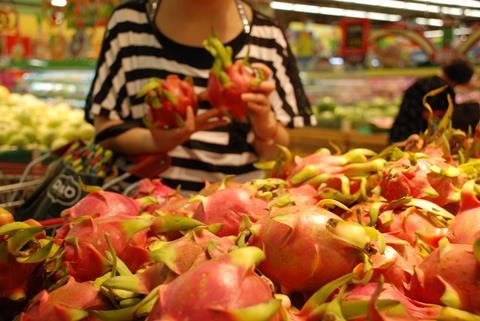Fresh produce export industry pushes to establish and promote a unified brand identity for Vietnamese fruit

Vietnam needs to develop a national brand identity for its fruit to help add value and increase competitiveness in international markets, according to new calls from the country’s fresh produce industry.
According to a report from Vietnam News, although Vietnam does have a strong fruit export trade, there is not a unified brand identity like a number of other international suppliers.
“When talking about apples, we think about the US,” said Nguyen Dinh Tung, director of Vina T&T Import-Export Company.
“Talking about kiwis, we think about New Zealand. Talking about melons, we think about Japan. Talking about Monthong durians, we think about Thailand. Talking about Musang King durians, we think about Malaysia… Meanwhile, Vietnam, where many types of fruits are grown, does not have any famous fruit brands.”
Tung said Vietnam had quality products such as Ri6 durian, but because they lacked a strong brand exports could not achieve a premium price.
“Because there is no brand, the price of Ri6 is always about 20 per cent lower than Monthong and much lower than Musang King,” Tung said.
Le Thị Kieu Oanh, director of Vietnamese exporter Apple LLC, pointed to dragon fruit as another example. Oanh said Japan imported dragon fruit from Vietnam, but only 10 per cent were sold at supermarkets under Vietnamese brand names.
Tạ Duc Minh, Vietnamese Trade Counselor to Japan, said Vietnamese exporters needed to communicate a brand story to international consumers.
“It’s time for Vietnamese fruits to focus on improving quality and adding cultural and creative elements to farming methods so that products contain stories that appeal to consumers,” Minh said.
Tung said to build the national brand the industry needed to pay attention to and promote factors such as specific varieties, Vietnamese culture, quality, food hygiene and safety etc. Geographical indication certificates are another way to add value, but these must be strictly controlled he argued.
“We should select several types of fruits to build national brands for,” Tung said. “Like New Zealand, this country successfully built brands for kiwifruit, which have markets around the world with the export value of over US$3bn per year, equal to the whole fruit and vegetable export of Vietnam.”



